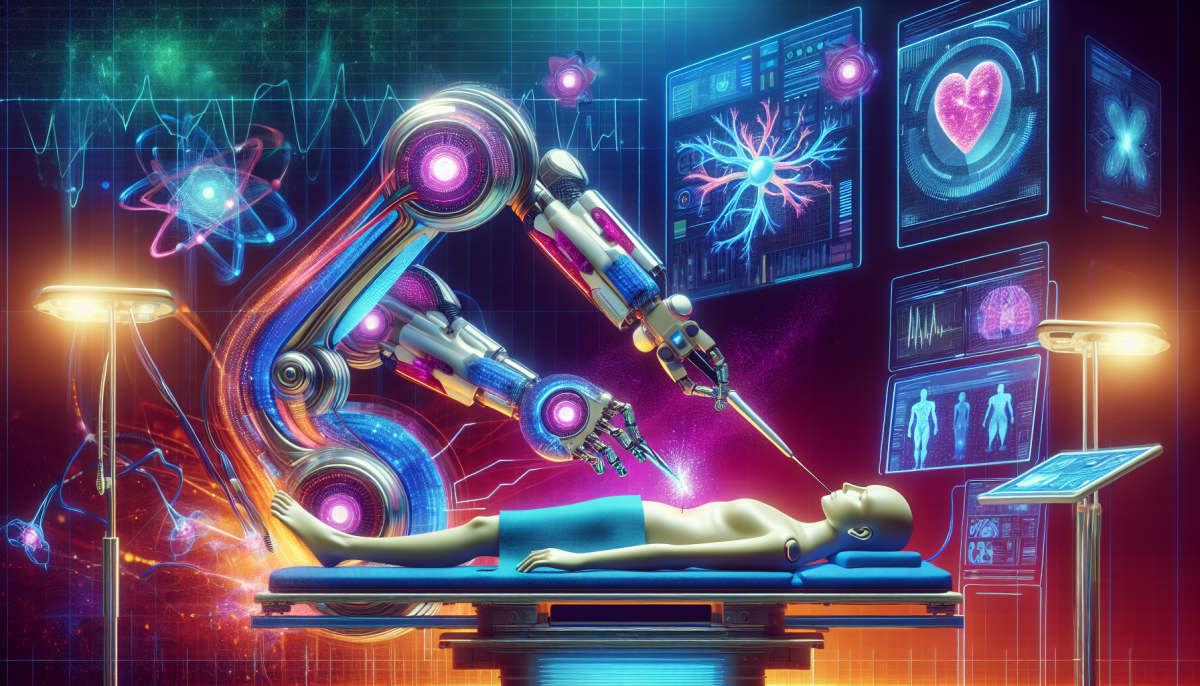AI is shaking things up in healthcare, and the benefits are pretty exciting. One of the biggest perks is how AI helps doctors make better decisions faster. With the ability to analyze tons of patient data in no time, AI tools can point out patterns or potential health risks that might get overlooked. This means that when you visit your doctor, they have more detailed insights to guide your treatment.
Another awesome benefit is enhanced patient care. AI-powered chatbots and virtual assistants are becoming popular in healthcare settings. They can answer your questions, remind you to take your meds, or even schedule appointments for you. This 24/7 support makes it easier to get the help you need without always waiting for a doctor’s office to open.
AI is also improving medical research. By sifting through massive amounts of data, it speeds up the discovery of new treatments and drugs. Researchers can analyze clinical trials more efficiently, reducing the time it takes to bring new therapies to patients. This means better options for you when it comes to treatment.
Lastly, we can't forget about cost savings. AI helps streamline administrative tasks, reduce paperwork, and prevent unnecessary tests. Hospitals and clinics can focus more on patients and less on red tape. Ultimately, this can lead to lower healthcare costs for everyone, which is a win-win situation!
How AI Improves Patient Experience
AI is making significant waves in healthcare, especially when it comes to enhancing patient experience. Imagine going to a doctor's appointment without the usual stress of long waits and confusing paperwork. With AI-driven tools, healthcare facilities can streamline processes, helping patients get seen faster and with less hassle.
One of the most exciting aspects is AI’s ability to assist in scheduling. Instead of playing phone tag with the receptionist, patients can use smart scheduling apps powered by AI. These apps consider your availability and the doctors’ schedules to find the perfect time for your appointment, making the whole process quicker and smoother.
AI also plays a key role in personalizing patient care. By analyzing patient data, AI can suggest tailored treatment plans and follow-ups that align with individual health needs. This means that rather than a one-size-fits-all approach, you get care that's specifically designed for you, making you feel valued and understood.
Lastly, let’s talk about communication. AI chatbots are becoming more common in healthcare. They can answer common questions, remind you about your medication, or even guide you through pre-visit preparations. This constant access to information not only eases worries but also fosters a more active role in your own health journey.
Overcoming Challenges in AI Adoption
Adopting AI in healthcare is exciting, but it isn’t without its bumps in the road. One of the biggest hurdles is the resistance to change. Many healthcare professionals are used to traditional methods and might feel uneasy about relying on technology. This is where education and training come into play. By providing workshops and hands-on sessions, teams can become more comfortable with how AI can actually enhance their work rather than replace them.
Another challenge is ensuring data security and patient privacy. With all the advancements, it's crucial that healthcare organizations prioritize strong security measures. This means using encrypted systems and regularly updating protocols. By showing that AI can safely handle sensitive information, healthcare providers can build trust with both staff and patients.
The technical aspects can be daunting too. Many facilities face difficulties integrating AI systems with their existing infrastructures. To tackle this, organizations should start small. Implementing AI in one area, like patient scheduling or diagnostics, can allow teams to see the benefits without feeling overwhelmed. Once they get used to it, scaling up becomes more manageable and less intimidating.
Finally, there’s the issue of cost. Investing in AI technology can seem expensive at first glance, but the long-term savings and efficiency gained can make a big difference. It's essential for healthcare leaders to view this investment as a way to enhance patient care and streamline operations, which can lead to overall better outcomes for everyone involved.
The Future of AI in Medicine
One exciting area is predictive analytics. AI can sift through mountains of data to identify patterns and trends that might go unnoticed by human eyes. This means early detection of diseases and more personalized treatment plans based on an individual’s health history. Doctors will have powerful insights at their fingertips, allowing them to make better decisions faster.
AI is also improving the way we manage patient care. With smart algorithms, healthcare providers can optimize scheduling and reduce wait times, making visits more efficient. And don’t forget about telemedicine! AI can enhance virtual consultations by helping doctors assess patients remotely, ensuring quality care no matter where you are.
Last but not least, AI in medical research is speeding up the development of new drugs. By analyzing vast amounts of data, machines can identify potential compounds and predict their effectiveness way quicker than traditional methods. This means new treatments could reach patients sooner, ultimately saving lives.



